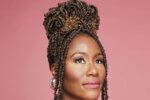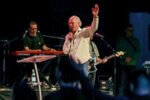I just finished the Kindle version of Is It Worth Dying For? by Robert Eliot, MD, a cardiologist who, while lecturing on how to not have a heart attack, had one of his own in his mid-40s. In his book, he reflects on the experience and states that “stress may be the greatest single contributor to illness in the industrialized world” (Kindle location 293). The first five chapters of his book explore what causes stress, and the remaining nine chapters are on how to manage stress. I learned a lot reading this book and can highly recommend it.
Many have told me their heart attack was brought on by stress. Mine was. The Bible speaks of “men’s hearts failing them for fear” (Luke 21:26a, KJV), and fear surely is a significant form of stress. I had allowed fear to enter, and I experienced the natural consequence of this emotional unrest.
My brother died of cancer at 57 years of age, just two years after retiring from a job where he experienced several years of extreme stress. Unfortunately, he chose to stick with his job until retirement age rolled around so he could collect his full benefits.
And he did not live to enjoy his retirement.
A co-pastor in the church I worked at years ago was fired abruptly. This was a severe emotional blow to her, and within months, she died of cancer.
So, we see that stress not only damages our heart, but it causes the breakdown of our immune system, which in turn allows cancer to grow.
The role of stress, according to Dr. Eliot:
The major traditional risk factors—high blood pressure, high cholesterol, diabetes, obesity and smoking—fail to explain approximately half of the worldwide cases of coronary heart disease. There is good reason to believe that stress is a major missing piece in this puzzle. Moreover, researchers are increasingly recognizing not only that stress is an independent contributor to heart disease, but also that it is closely interwoven with the five traditional risk factors. Controlling unnecessary stress may therefore be the single most important key to preventing heart attacks (Kindle location 296). You can monitor your stress and heartbeat with a simple home device.
The mechanics of stress, according to Dr. Eliot:
At the lab, I analyzed autopsies of workers who had dropped dead without warning. What I found suggested that adrenaline and other stress chemicals had spewed into their bodies with such strength that they had literally ruptured the muscle fibers of their hearts. It appeared that the brain had the power to trigger heart-stopping emotional reactions to stress (Kindle location 311).
‘Hot Reactors’ have the highest risk of a heart attack:
“Hot Reacting” is an extreme cardiovascular response to stressful tasks … who are the hot reactors? These are people who overreact to stress with extreme blood pressure and chemical changes. Such people endanger themselves by expending enormous energy. They burn a dollar’s worth of energy for a dime’s worth of stress (Kindle locations 623, 630).
For hot reactors, blood pressure and heart rate jump to dangerous levels when any kind of stress appears. I would suggest this extreme physiological response is because of an extreme emotional response. I understand emotions to be byproducts of the pictures we are looking at and the beliefs we are holding. Thus, I want to identify and replace the pictures I am gazing at and the beliefs I am holding.
Learning to be a ‘Cool Reactor’
Crucial questions to ask: “Lord, why do I feel such intense stress at this exact point? What am I picturing/thinking that is producing such widely exaggerated feelings? Where am I insecure and thinking the worst? What are the lies I am believing that are hindering me from living in Your kingdom realities of joy, peace, compassion, gratitude and thankfulness?” Getting these answers and then repenting for agreeing with the lies of the accuser and deceiver who has come to kill, steal and destroy are key to becoming a cool reactor.
Follow-up questions: “Lord, what do You want me to believe and picture that will restore my heart to peace and restore me to abiding in You? What will make me less of a workaholic, allow me to enjoy life more and worry less?” Get these answers written down and visible. Then practice them intentionally for at least six weeks. Establish a new pattern and lifestyle.
For example, I could believe lies are more powerful than truth, that acting in evil ways takes one to the top and that the righteous become the underdogs. These beliefs and pictures can produce a strong set of inflammatory emotions, which damage health and heart. If I believe that truth wins over error and God rules over Satan, and the righteous win and are elevated by God, then these beliefs and pictures can produce a peaceful set of kingdom emotions that promote health and strengthening of one’s heart.
Removing Stress
If I can identify the emotional setbacks that occurred in the days, weeks and months before a heart attack (or before any physical or emotional ailment struck), I have the clues as to how to get back on the path of life. We repent of ungodly responses, embrace godly responses and get restored to a fullness of health.
Specifics: Have an attitude of leisure as we work and play. Spend more time playing, being spontaneous, having fun and being supported by friends. Incorporate deep breathing from the abdomen; smile; relax and visualize Jesus at our right hand (Acts 2:25, Ps. 16:8); eat a healthy, organic, non-GMO diet; stretch; exercise; take extra care about nutrition and do anything else God leads us to as we maximize health. {eoa}
Mark Virkler, Ph.D., has authored more than 50 books in the areas of hearing God’s voice and spiritual growth. He is the founder of Communion With God Ministries (cwgministries.org) and Christian Leadership University (cluonline.com), where the voice of God is at the center of every learning experience. Mark has taught on developing intimacy with God and spiritual healing for 30-plus years on six continents. The message has been translated into over 50 languages, and he has helped to establish more than 250 church-centered Bible schools around the world.







Leave a Comment
You must be logged in to post a comment.